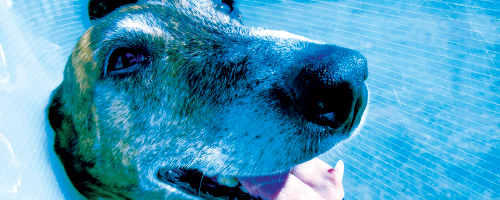Although the veterinary malpractice lawsuit is treated under the law in the same manner as a medical malpractice case because of the factual circumstances surrounding these claims, their defense can be very different. Below are some perspectives that make the veterinary malpractice action a very unique “animal.”
The majority of vet malpractice claims are brought in Pennsylvania’s magisterial district courts (our Commonwealth’s equivalent of “small claims court”). When a party files in a magisterial district court, a hearing is usually scheduled within a month or so and the district magistrate must render his or her decision within five days of the hearing. Thus, litigants can be assured of a speedy resolution. These courts are also designed to be “user friendly,” so that litigants need not hire an attorney. Thus, many vet malpractice plaintiffs appear pro se—that is, on their own behalf, and are usually not well-acquainted with the Rules of Evidence or how hearings are conducted. For this reason, district magistrates tend to be fairly lenient as to what evidence is allowed and are also somewhat less formal in how a hearing proceeds.
Despite these differences, a plaintiff suing a veterinarian is still required to prove certain facts notably that the veterinarian deviated from the applicable standard of care. That is, the plaintiff must show that in treating the plaintiff’s pet, the veterinarian did not adhere to proper treatment standards. Under Pennsylvania law, a plaintiff must present the testimony of an expert—that is, another veterinarian—in order to establish that the defendant did not render appropriate care.
Most plaintiffs are unable to meet this burden of proof at hearing because they are unaware of this requirement or because the cost to retain an expert is generally prohibitive in light of the damages at stake. When a plaintiff arrives at a magisterial district court hearing without an expert, the district magistrate should, technically, dismiss the case automatically. Most district magistrates will, as a matter of course, permit the plaintiff to present their case but will then dismiss either at the close of plaintiff’s case or following the presentation of the defendant’s evidence.
A second potential weakness in the veterinary malpractice case is that plaintiffs are often unaware that the amount of money they can recover is actually quite limited. A pet, regardless of the love and affection it may bring to its owners, is under Pennsylvania law, considered to be “chattel” or personal property and a court may only award the actual value of the pet at the time of the treatment. Since most animals at the core of such lawsuits are family pets, their value is usually quite modest. Many pet owners seek compensation for their animal’s pain and suffering or their own emotional distress however Pennsylvania law does not permit a plaintiff to recover those damages.
Since Pennsylvania’s magisterial district courts do not permit parties to conduct any pre-hearing “discovery,” or formal requests for information, a vet malpractice defendant and his or her counsel may know very little about the nature of the plaintiff’s claim beyond what may be contained in their records. For this reason, defending such claims at the magisterial district court level requires counsel to be ready for anything. Whether it is the plaintiff who brings other pet owners to the hearing to testify that they, too, have had issues with the veterinary professional (irrelevant and inadmissible), or the litigant who attempts to introduce into evidence the “body bag” in which their deceased pet was returned to them (again, irrelevant, though packs an emotional wallop)—both real-life examples from my practice.
Finally, the veterinary professional’s counsel should keep in mind that the level of emotion attendant to vet malpractice claims is usually quite high. Some plaintiffs may be motivated by guilt, as when there may be some level of neglect on their part (or the decision not to continue care due to cost), while others are profoundly affected by their sense of personal loss. In my legal practice—without exception—the plaintiff bringing the vet malpractice claim inevitably ends up in tears at some point during the hearing process and few are able to contain their anger and grief. This factor can lead to some very interesting proceedings.
With a menagerie of clients to care for and a business to run, considering how to defend a veterinary malpractice lawsuit may be the last thing on a veterinary professional’s mind. However, an awareness of how such claims are litigated and defended is an important step in maintaining and protecting the practice. Should an action arise, maintain constant communication with your lawyer and be prepared for anything to happen. While the potential economic exposure in such cases may be small, your good reputation as a veterinary professional is priceless. With proper preparation and the wherewithal to deflect the unexpected, your attorney should be able to successfully defend most matters so that you can get back to caring for your furry (and not so furry) clients.






















